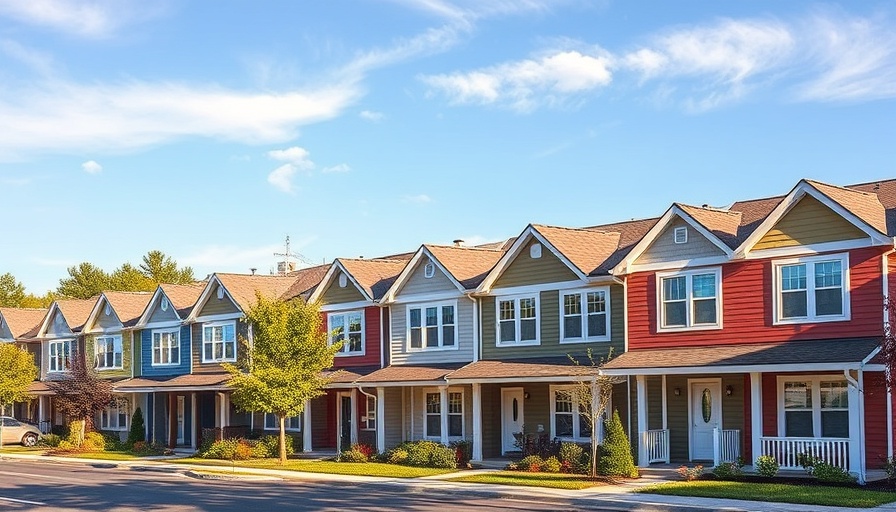
Exploring the Differences: Second Homes vs. Investment Properties
As many Maryland residents look to invest in real estate, the choice between purchasing a second home for personal enjoyment or an investment property for financial gain becomes increasingly pertinent. Both options can be rewarding, but understanding their differences is crucial to aligning your decision with your personal and financial goals.
What is a Second Home?
A second home, often chosen for seasonal escapes or vacation enjoyment, is primarily intended for the owner's personal use. In Maryland, it might be a cozy lakefront cabin or a small retreat in the quiet hills—places where families create lasting memories together.
One of the biggest benefits of owning a second home is the potential financial advantage tied to its value appreciation. While enjoying your property, you also invest in an asset that may increase in value over time. Mortgage lenders typically offer more favorable financing options for second homes, including lower interest rates and lower down payment options—often as low as 10%.
Investment Properties: A Path to Wealth
In contrast, investment properties are purchased explicitly to generate income, such as renting to other families or individuals. While the investment property may also bring personal enjoyment, the financial structure of ownership is distinct. Typically, investing in property means a more significant upfront financial commitment, with down payments ranging from 20% to 30%, and slightly higher interest rates.
However, the tax benefits can be significant. Owners of investment properties can deduct expenses like mortgage interest, property taxes, and repairs, further enhancing the financial viability of these properties in the long term. As a bonus, many investors utilize tools such as the 1031 exchange to defer capital gains taxes by reinvesting in similar properties, strategically increasing their wealth.
Key Considerations in Your Decision
When choosing between a second home and an investment property in Maryland, consider your lifestyle, financial situation, and long-term goals. Do you seek a relaxing weekend retreat or aspire to build sustainable wealth? Understanding the differences in financing, usage rules, and tax implications will empower you to make an informed choice.
Emotional Aspects of Second Home Ownership
Purchasing a second home often evokes emotion. The idea of having a safe haven where loved ones can gather fosters a sense of belonging and relaxation. These personal touches—like hosting holiday dinners or simply unwinding by the water—create an emotional investment that a strictly financial property would not fulfill.
Investment Property Responsibilities: Are You Ready?
Becoming a property manager or landlord carries its own set of responsibilities. Active involvement in renting out your space comes with obligations, from tenant selection to property maintenance. Understanding these responsibilities is essential, especially for those new to the investment property landscape. Are you ready to engage with tenants and take on the occasional late-night phone call regarding a broken heating system?
Making the Right Choice for You
Ultimately, the decision should resonate with your lifestyle and aspirations. Whether your heart leans toward the tranquility of a second home or the financial freedom of an investment property, it is crucial to align your choice with your broader health and wellness goals. Investing in a property means investing in your happiness, so take your time and consider what's best for you.
For further insights on choosing the right property type for you, consider reaching out to a local real estate professional. They can provide guidance tailored to your unique situation, helping refine your decisions as you pursue the ideal property.
Remember, the community you invest in will also play a vital role in your experience. Explore neighborhoods, connect with residents, and envision your future home, emphasizing your wellness and happiness above all.
 Add Row
Add Row 
 Add Element
Add Element 


Write A Comment